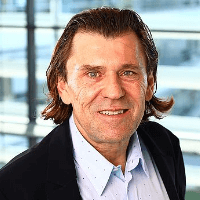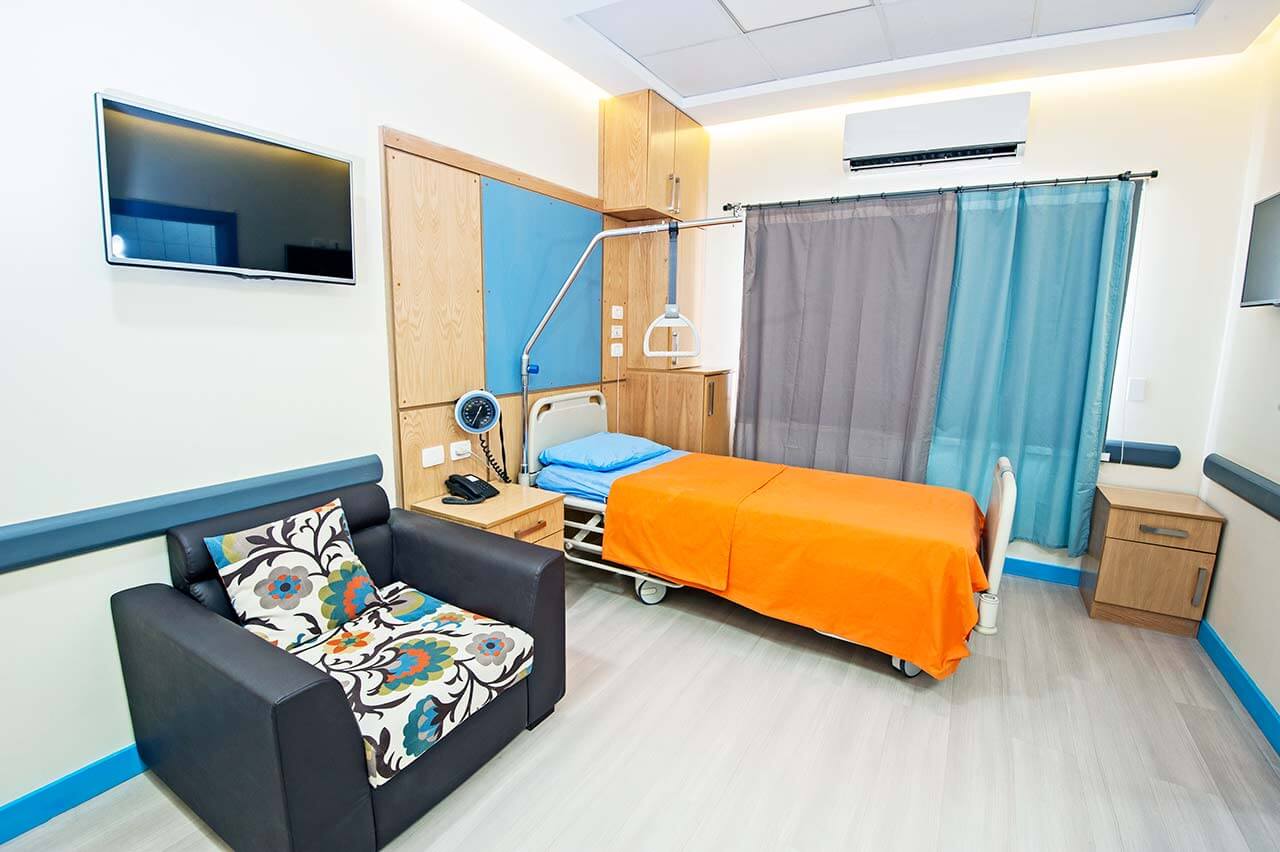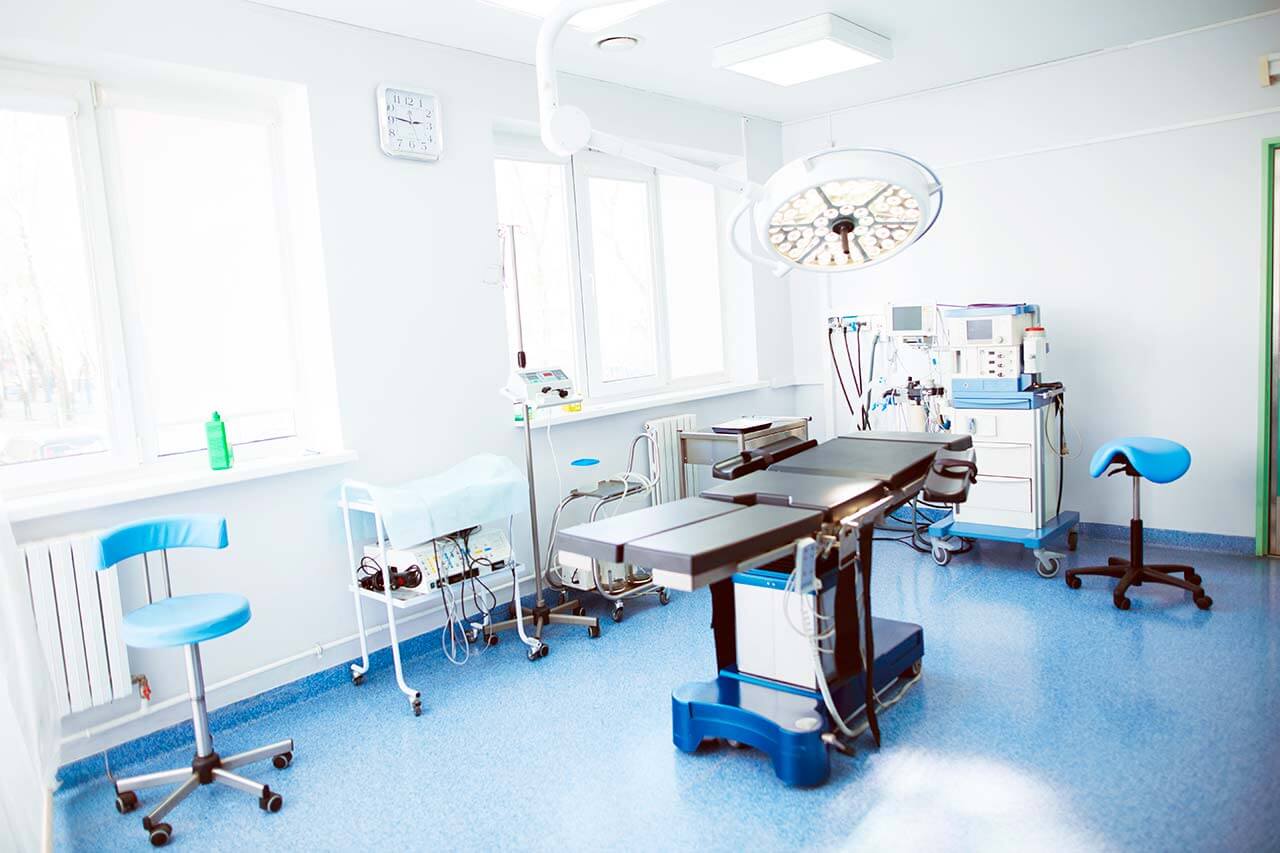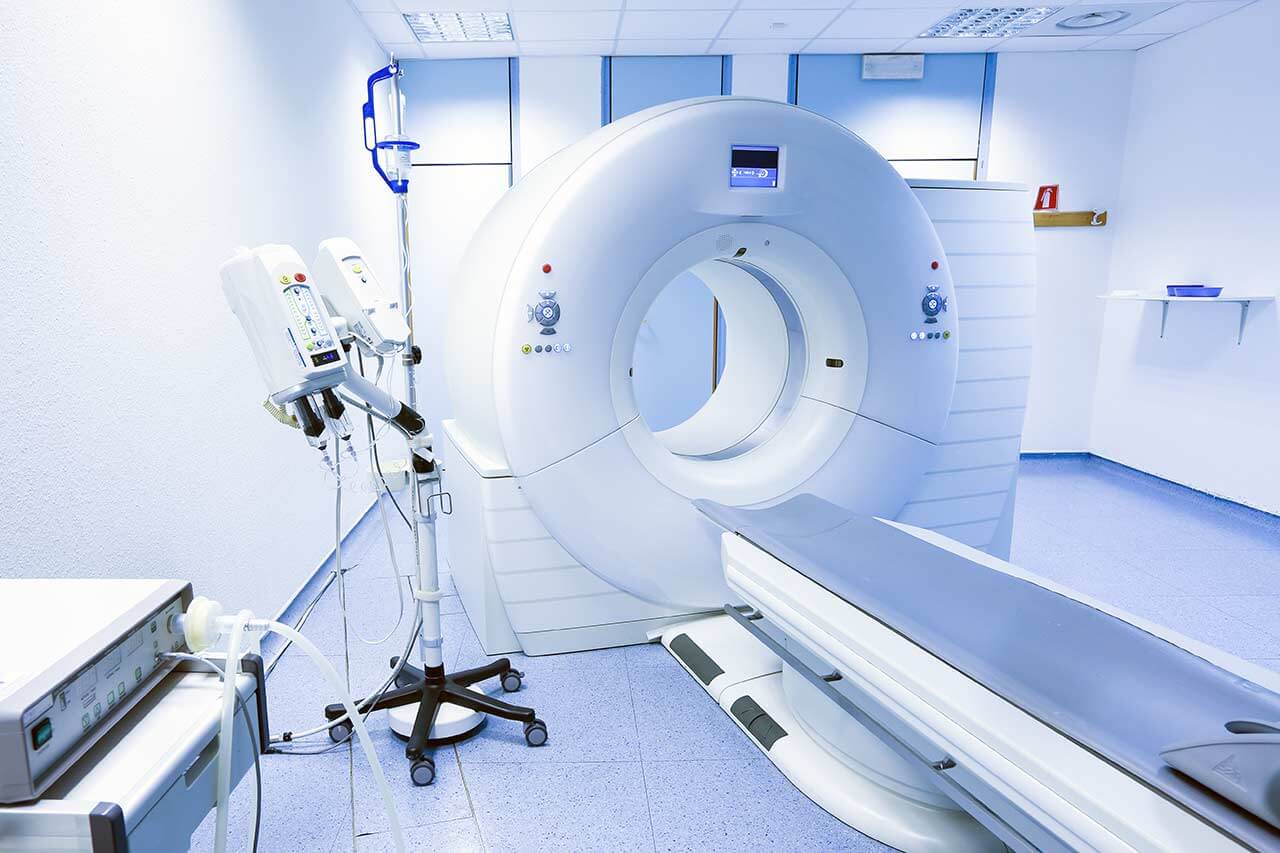
The program includes:
- Initial presentation in the clinic
- clinical history taking
- review of medical records
- physical examination
- ophthalmological examination
- laboratory tests:
- complete blood count
- general urine analysis
- biochemical blood test
- inflammation markers (CRP, ESR)
- blood coagulation analysis (aPTT, PT, INR)
- tumor markers
- ultrasound of the eye
- CT/MRI scan of the head
(if indicated clinically, additional cost is 650/1200€) - biopsy with histological study
(if indicated clinically, additional cost is 2500€) - nursing services
- services of all leading experts
- explanation of individual treatment plan
Required documents
- Medical records
- MRI/CT scan (not older than 3 months)
- Biopsy results (if available)
Service
You may also book:
 BookingHealth Price from:
BookingHealth Price from:
About the department
The Department of Adult and Pediatric Ophthalmology at the Municipal Hospital Karlsruhe offers the full range of diagnostic and therapeutic services for patients with eye diseases, including refractive eye surgery and plastic aesthetic interventions. The department's specialists successfully cope with the treatment of such diseases as cataracts, glaucoma, age-related macular degeneration, and traumatic injuries to the eye and orbit. The department has high-tech operating rooms for interventional procedures of varying complexity. Diagnostics occur on an outpatient basis, after which further treatment tactics are determined. Many vision correction procedures are performed using state-of-the-art laser systems. The team of doctors uses their long clinical experience and modern equipment to allow patients the opportunity to see the world in bright colors. The department is headed by Prof. Dr. med. Albert Augustin.
The department admits many patients with cataracts (partial or total clouding of the eye's lens). Without timely therapeutic measures, cataracts can provoke an irreversible vision loss. The disease most often affects elderly patients, but also occurs in middle-aged people. Cataracts can also be congenital or develop during the first years of a child's life. The department's ophthalmologists resort to drug therapy and surgical techniques during the treatment. As a drug therapy, eye drops can improve metabolic processes in the lens and surrounding tissues. However, the use of eye drops can only slow down the development of the pathology for a specific time, and radical correction requires a surgical intervention. During the operation, a surgeon replaces the patient's clouded lens with an intraocular lens. The department's specialists use all intraocular lenses available in modern ophthalmology. The optimal type of lens is selected based on a specific clinical case. Cataract surgery takes about 20 minutes and is performed using local anesthesia. All patients, including the elderly, easily tolerate the intervention; it does not require a prolonged postoperative recovery.
An equally important focus of the department's ophthalmologists is on the treatment of glaucoma. If a person has this pathology, the outflow of intraocular fluid is impaired, and the optic nerve is affected. Glaucoma is a severe disease that causes blindness. The diagnostic stage involves optical coherence tomography, manual and computer perimetry, and 24-hour intraocular pressure measurement. Drug therapy and surgical techniques are used in the fight against glaucoma. The intake of antiglaucoma drugs is aimed at reducing the production of intraocular fluid and improving its outflow, thereby normalizing intraocular pressure. However, this type of treatment is effective only in the early stages of glaucoma, and it is completely contraindicated for some patients with concomitant diseases. In such cases, the department's ophthalmologists resort to Nd:YAG laser iridotomy, iridectomy using surgical techniques, trabeculectomy, cryotherapy and other treatments.
The department also successfully treats age-related macular degeneration. The disease affects the central part of the retina (macula) and often leads to blindness. Age-related macular degeneration is most often diagnosed in patients over 50. Today, the most effective treatment is intravitreal injections of anti-VEGF drugs. The drugs are administered under sterile operating room conditions, and the procedure takes only a few minutes. In addition, the treatment does not cause any pain. In appropriate clinical indications, photodynamic therapy can also be performed.
The department's diagnostic and therapeutic options include:
- Diagnostics and treatment of cataracts
- Diagnostic methods
- Oxygen permeability determination with wavefront analysis
- Treatment methods
- Lens implantation (for example, multifocal and blue filter lenses)
- Secondary lens implantation for complex clinical cases: loss of the lens capsule, displacement of the lens in the vitreous body, etc.
- Surgical treatment of early childhood cataract (in collaboration with the Child and Adolescent Health Center)
- Diagnostic methods
- Diagnostics and treatment of glaucoma
- Diagnostic methods
- Optical coherence tomography
- Manual and computer perimetry
- Stationary daily intraocular pressure measurement
- Treatment methods
- Nd-YAG laser iridotomy
- Surgical iridectomy
- Trabeculectomy
- Stent implantation
- Treatment of complex forms of glaucoma
- VEGF therapy for neovascular glaucoma
- Drainage
- Cryotherapy for drug-resistant glaucoma
- Diagnostic methods
- Diagnostics and treatment of retinal and vitreous diseases
- Diagnostic methods
- Fundus photography
- Fluorescein and indocyanine green angiography
- Optical coherence tomography of the retina
- Optical coherence tomography of the optic nerve
- Ultrasound scanning
- Treatment methods
- Laser therapy and cryotherapy (Pascal laser and conventional argon laser)
- Intravitreal injections of VEGF inhibitors and photodynamic therapy for age-related macular degeneration
- Intravitreal injections for macular edema
- Surgical treatment of macular and epiretinal gliosis
- Subretinal surgery
- Pars plana vitrectomy and endotamponade with gas or silicone oil for retinal detachment
- Diagnostic methods
- Diagnostics and treatment of conjunctival and corneal diseases
- Diagnostic methods
- Ultrasound pachymetry (corneal thickness measurement)
- Ultrasound biomicroscopy
- Corneal topography
- Bacteriological and virological tests
- Histological and cytological tests
- Treatment methods
- Treatment of corneal diseases
- Crosslinking
- Keratoplasty
- Keratoprosthesis implantation
- Treatment of dry eye syndrome
- Therapeutic contact lenses
- Immunosuppressive therapy (cyclosporine)
- Tarsorrhaphy
- Lacrimal occluder implantation
- Treatment of corneal diseases
- Diagnostic methods
- Visual loss repair
- Phakic lens implantation
- Diagnostics and treatment of eye and orbit injuries
- Diagnostics and treatment of eyelid diseases
- Diagnostics and treatment of ophthalmic diseases in children
- Retinopathy of prematurity
- Strabismus
- Cataract
- Diagnostics and treatment of other ophthalmic diseases in adults and children
Curriculum vitae
Higher Education and Professional Career
- 1983 - 1989 Study of Human Medicine at the Universities of Essen, Heidelberg and Wuerzburg.
- April 1989 Final State Examination at the University of Wuerzburg, summa cum laude.
- February 1990 Doctorate in Medicine, University of Wuerzburg, summa cum laude.
- 1990 - 1991 2-year research fellowship in Wuerzburg at the Department of Physiology: "Oxidative tissue damage following intestinal ischemia and reperfusion; burdening of the monocyte-macrophage system by perfluorochemicals".
- 1991 - 1995 Residency in Ophthalmology, Department of Ophthalmology, University Hospital Bonn.
- April 1996 Habilitation. Subject: "Investigation of oxidative and inflammatory tissue damage in hereditary retinal diseases, diseases of the retinal pigment epithelium, experimental uveitis and dry eye syndrome".
- Venia legendi in Ophthalmology with Associate Professorship.
- July 1998 - April 2001 Professor of Ophthalmology at the University of Mainz (Head of the Retina Section and Head of the Laboratory for Eye Pathophysiology).
- May 2001 Head the Department of Adult and Pediatric Ophthalmology at the Municipal Hospital Karlsruhe.
Research Focuses
- Pathobiochemistry and pathophysiology of oxidative damage to the eye.
- Biochemistry of the tear fluid.
- Immunology of experimental lens and autoimmune uveitis (influence of antioxidative drugs).
- Immunology of Graefe´s disease.
Photo of the doctor: (с) Städtisches Klinikum Karlsruhe
About hospital
The Municipal Hospital Karlsruhe is a modern maximum care medical facility, which combines a long tradition and the advanced achievements of modern medicine. The hospital operates on the basis of the University of Freiburg, so scientific innovations in the field of diagnostics and treatment are continuously introduced into practice here. The hospital presents almost all areas of modern medicine, including many medical services for young patients.
A highly qualified and experienced team of more than 4,500 employees provides impeccable medical care. The medical facility has 1,571 beds for the hospitalization of its patients. The hospital admits more than 63,000 inpatients and about 186,000 outpatients annually. A large number of patients wishing to receive medical care in the hospital speak for themselves and are a confirmation of the exceptional service, as well as the effectiveness of the treatment provided.
The quality management system of the hospital's medical care is certified in accordance with the DIN EN ISO 9001 standards. Since 2016, the hospital has implemented a regular quality control in compliance with the strict standards of the Initiative Quality Medicine (IQM). In addition, almost all departments of the hospital have numerous certificates in their areas of specialization, including certificates from the German Cancer Society (DKG), the German Society for General and Visceral Surgery (DGAV), the German Cardiac Society (DGK), the German Diabetes Society (DDG), the German Society of Nephrology (DGN), the German Trauma Society (DGU), etc.
The main value of the hospital's staff is the health and satisfaction of their patients, so a respect and a humane attitude towards each patient remain priorities. The doctors and nursing staff support each patient in every possible way on their path to recovery. The specialists also strive to perform the most sparing, but at the same time the most effective and safe treatment.
Photo: (с) depositphotos
Accommodation in hospital
Patients rooms
The patients of the Municipal Hospital Karlsruhe live in cozy patient rooms with everything necessary for a comfortable stay. Standard patient room furnishing includes an automatically adjustable bed, a bedside table, a TV, and a telephone. The patient rooms have Wi-Fi. Each patient room also has an ensuite bathroom with a shower and a toilet.
The patient rooms in the pediatric departments are specially designed for children, so that young patients feel at home. Children can live in their patient room with one of their parents. There are also special playrooms designed for children.
Meals and Menus
The patients of the hospital are offered tasty and varied three meals a day: breakfast, lunch and dinner. The menu also features dietary meals. The kitchen staff will gladly accept all the individual wishes of patients.
The hospital also has a cozy cafe where one can have a tasty snack, drink tea, coffee and soft drinks.
Further details
Standard rooms include:
Religion
The hospital has two chapels that regularly host Protestant, Catholic, and Ecumenical worship services. A patient can watch the broadcast of the worship on TV channels in his own room, if desired.
Accompanying person
Your accompanying person may stay with you in your patient room or at the hotel of your choice during the inpatient program.
Hotel
You may stay at the hotel of your choice during the outpatient program. Our managers will support you for selecting the best option.





